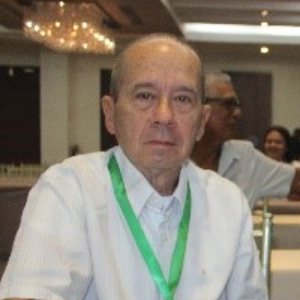Title : Agroecological transition in the decentralization of agrobiotechnologies in Cuba
Abstract:
The decentralization of agrobiotechnologies has been a traditional demand, which has put pressure on technological adaptability, compliance with quality and biosecurity requirements in production processes and the creation of capacities to self-manage production in the territories. In order to synthesize experiences in the decentralization of agrobiotechnologies in Cuba, published information and event reports were reviewed, complemented with personal experiences from exchanges with biotechnologists, technicians and farmers in research projects (until 2014) and local development (to date). In Cuba, agrobiotechnologies have been decentralized with three purposes: (a) obtaining reproductive material (different types of seeds); (b) production of microbiological bioproducts (nutrition and crop health); (c) adding value to agricultural products (processing for preservation and transformation in mini-industries). The agroecological transition in the decentralization of agrobiotechnologies is assessed in three dimensions: (1) scope (national, territorial, local or cooperative and agroecosystem); (2) adoption (co-innovations, access by farmers, local circularity in management); (3) contribution to sustainability (local self-management, food safety, resilience to extreme events). However, technological complexity, biosecurity risks and the cost of the facilities limit the territorialization of these biotechnologies. Agrobiotechnologies for mass plant multiplication have moved from national production and supply of seeds to those obtained in the territories and self-management by the farmers themselves (botanical and agamic seeds, seedlings and vitroplants); reinforced with participatory plant breeding to rescue traditional varieties and regionalize cultivars and clones better adapted to the different territories. Biotechnologies for obtaining microbiological bioproducts for crop health (entomopathogens, entomonematodes, nematodopathogens and phytopathogen antagonists) and entomophagues for the control of insect pests were originally developed in a decentralized manner towards territories, localities and cooperatives, through industrial and semi-industrial technologies, with a high level of adoption by farmers throughout the country and a relevant contribution to the substitution of imported chemical inputs in conventional agriculture and agroecological production in family and urban agriculture. Biotechnologies for the artisanal production of organic fertilizers (compost, vermicompost) were initially implemented as decentralized towards agroecosystems, cooperatives and territories; while, for microbiological biofertilizers, they are implemented on national and territorial scales, with increasing adoption by farmers. Biotechnologies for adding value to agricultural products were also initially developed as decentralized towards agroecosystems and cooperatives, with growth and presence in local food markets. The quality certification of plant genetic material obtained in the country (some species of botanical seed and all agamic seed) is carried out by the research institutes that produce the basic seed; while the local production of reproductive material (botanical seed, agamic seed, vitroplants and seedlings) is certified by local inspectors and laboratories of the national seed service. The supply of certified strains of microorganisms for the production of microbiological bioproducts (biofertilizers, biopesticides) is carried out by research centers that generate these biotechnologies, who also establish quality control of the productions.


